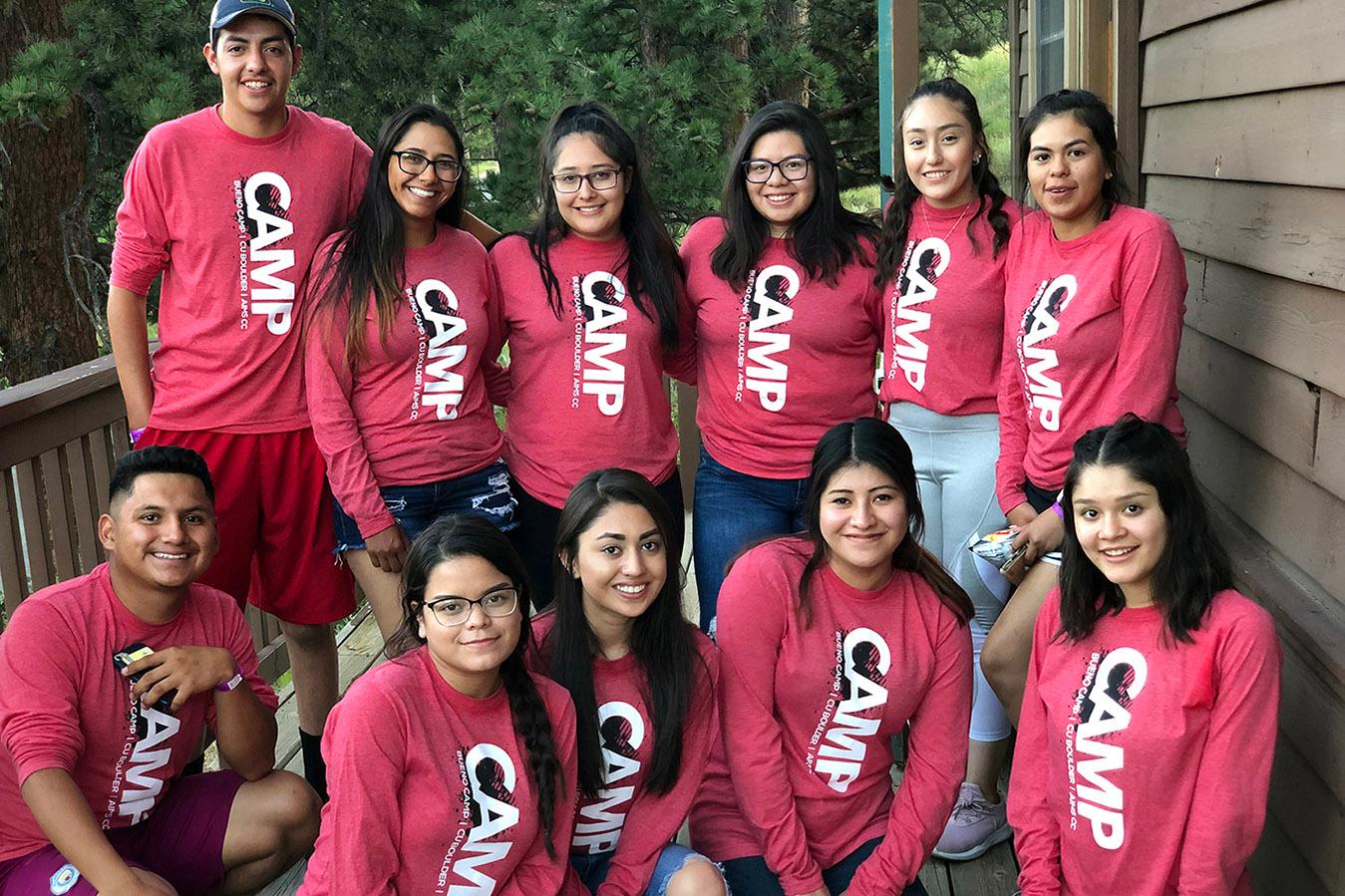
Hundreds of migrant workers, and sometimes their children, labor in fields and dairies, harvest after harvest, to bring Coloradans products that boost economies and stock grocery shelves with succulent Olathe sweet corn, juicy Palisade peaches, aromatic Rocky Ford cantaloupe, and fresh milk by the thousands of gallons.
But the children of these workers will no longer have support they once had to go to college and lift their families out of poverty.
Most of the college-based programs that helped thousands of Colorado migrant children enroll and succeed in higher education ended after the U.S. Department of Education abruptly halted federal funding. Many of the students were from rural Colorado and the first in their families to go to college.
Two Colorado programs however, remain open, at least one because it's funded through a Kansas university. Colorado had the fifth-highest number of universities participating in CAMP in the nation.
Shuttered programs
About 100 colleges and nonprofits across the country that supported children of migrant farmworkers through their first year of college lost funding. Metropolitan State University Denver and Adams State University in Alamosa have shut down their College Assistance Migrant Program known as CAMP.
The program cuts mean the loss of scholarships, tutoring, mentoring, counselling and community-building opportunities.
After 52 years of supporting students from farmworker families, Adams State University’s program shut its doors after an appeal for its $475,000 annual grant to continue was denied.
“We are deeply saddened by the impact halting CAMP will have on our students; however, it will not stop our mission of serving our students in need, especially now that such an impactful program has unfortunately been defunded,” said Aftin Gillespie, assistant vice president of student affairs.
The program has served 1,600 students from the families of seasonal farmworkers since 1972 — about 30 each year. Officials said those students have been transitioned into other campus support programs.
After more than two decades of support, MSU Denver has also shut down its program. It served about 25 students a year. The program in recent years boasted up to 100 percent student retention and 86 percent credit completion.
“This program has helped hundreds of students — many who are the first in their families to attend college — begin their studies with confidence, succeed academically and graduate prepared to give back and strengthen our shared community,” said Taylor Tackett, dean of students and associate vice president for student engagement and well-being.
Officials said they transitioned CAMP students into other campus programs that provide similar kinds of support for first-year students.
Staying alive — barely
Colorado State University’s two programs, one in Fort Collins and one in Pueblo, have secured funding. CSU Pueblo has it because the program is administered through a sub-award from Kansas State University rather than a direct federal award.
CSU Pueblo’s CAMP, now in its 16th year, has a 86-percent first-year completion rate and a nearly 60-percent six-year graduation rate — far higher than the university’s overall 42 percent graduation rate.
Provost Gail Mackin said those numbers reflect the mentoring and personal support that CAMP provides including “opportunities to gain confidence in themselves, their ability to be a college student, and an ability to make a mark in the world and support their families in return.”
“Most migrant families depend upon their family members to bring a wage and help the family survive,” said Maikin. “It’s a real investment for those families to send their children off to college…. because they're making a sacrifice.”
When Mackin learned last spring that funding for CAMP might be eliminated, she felt “disappointment and sadness.” The university has already lost other federal funding grants — $3.6 million – when the federal government cut money for Hispanic-Serving-Institutions and redirected nearly $500 million to Historically Black Colleges and Universities and Tribal Colleges and Universities.
After weeks of uncertainty, Mackin was "ecstatic" after learning the CAMP grant through Kansas State University came through.
Mackin said losing CAMP at other Colorado campuses sends a disheartening message to families who have long seen higher education as a path to stability. But she also believes in the resilience of the families the program serves.
“They have grit, they have determination,” Mackin said. “And I would imagine that the migrant families, those people who are working hard to provide a living for their family and to help support our agricultural economy….. they will find a way — and we’re here to help support that.”
CU Boulder’s “transformative” program hanging on — for this year
At CU Boulder, CAMP has served 720 students since 1990. The program, housed at the university’s BUENO Center, did not receive the second-year funding from a previously allocated five-year federal grant but is now fighting to stay alive. The university has stepped in to self-fund the program through June while the BUENO Center looks for alternative funding.
On Sept. 13 the program received a letter from the federal government stating that the grant was “inconsistent with and no longer effectuates the best interests of the federal government.” Under the Biden administration, colleges were asked to describe how they ensured equal access and treatment for eligible participants.
“We wrote what we wanted to do….it scored well, and [they] gave us the funds,” said Robert Garcia, who has directed CU Boulder’s CAMP since 2006. “Now they’re saying because you wrote that, your program is no longer in the best interest of the federal government.”
He said the program has been transformative for students, families and their communities by giving them access to educational and job opportunities that they didn’t have before.
The program has a 67 percent graduation rate — nearly double that of comparable students statewide.
He said one former CAMP student recently told a potential donor, “We’re not giving up,” Garcia recalled.
The student said the program meant so much to her and her family “that now it’s her passion to make sure the program continues.”
Through CAMP, the young woman was able to finish college, help her family buy a home and support her father in achieving his dream of owning a ranch.
“The trajectory of her family completely changed,” Garcia said.
Building belonging
Garcia said the loss of CAMP isn’t just about money — it’s about losing community.
“The first thing we do is build community within the cohort,” he said. “We take them on a retreat, we become a unit, like a familia, where we’re getting to trust each other.”
Garcia said equally important is the ripple effect. CAMP students mentor high schoolers and even middle schoolers.
“And those students get uplifted because they see faces that look like theirs, people who speak their home language now in college…. it shatters glass ceilings, right?”
Garcia said he’s seen multiple generations benefit from the program.
When the funding was cut, he said the outpouring from alumni and families was immediate:
“They’ve come back to us and tell us ‘How can we help?’ Unfortunately, what we need more than anything is financial support…and that’s something that’s a lot harder to come by these days.”
CU Boulder’s CAMP program will continue through June under university funding. Leaders and alumni are searching for new donors. But Garcia knows that will be tough because so many programs have been cut by the federal government, and competition for philanthropic dollars is fierce.







